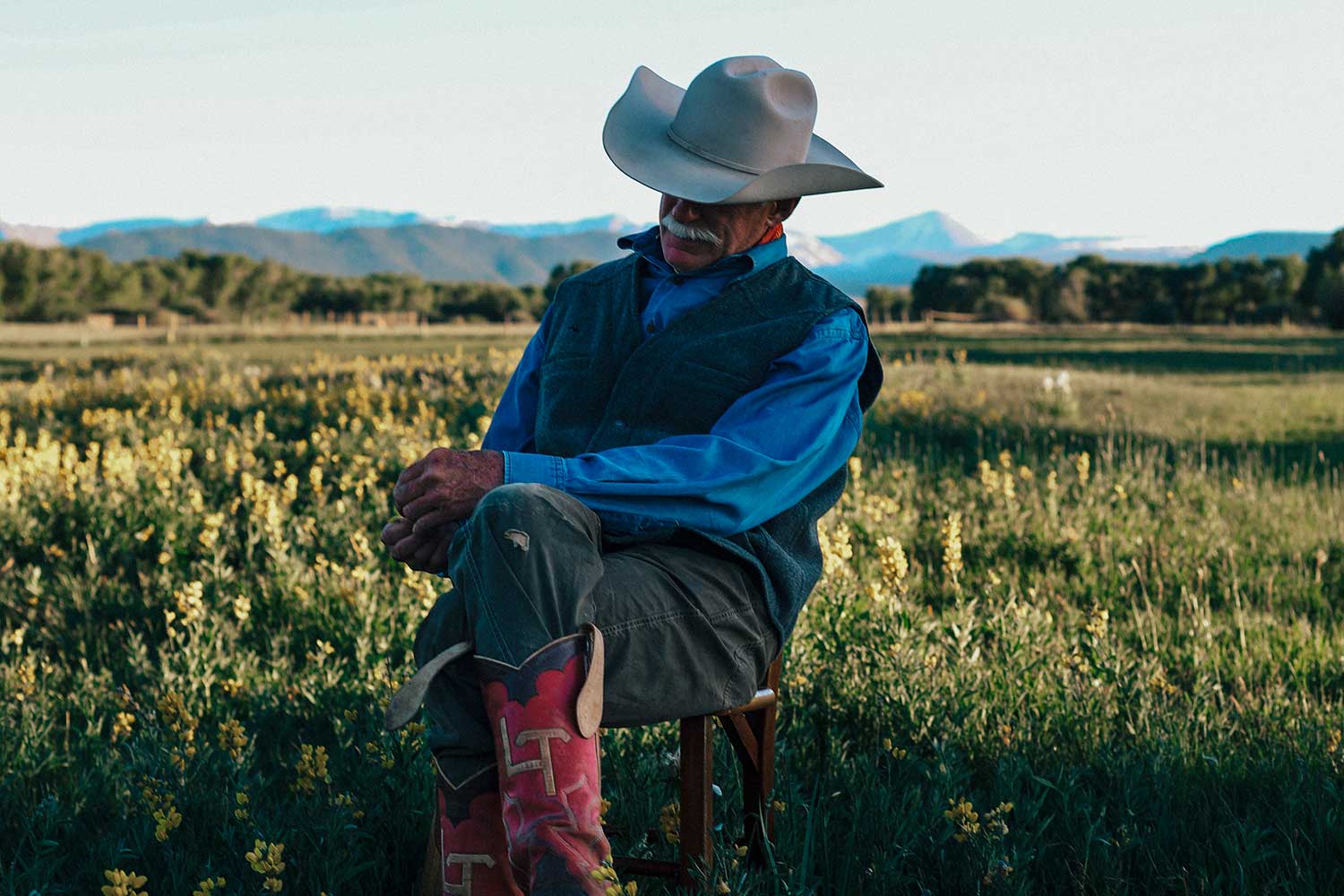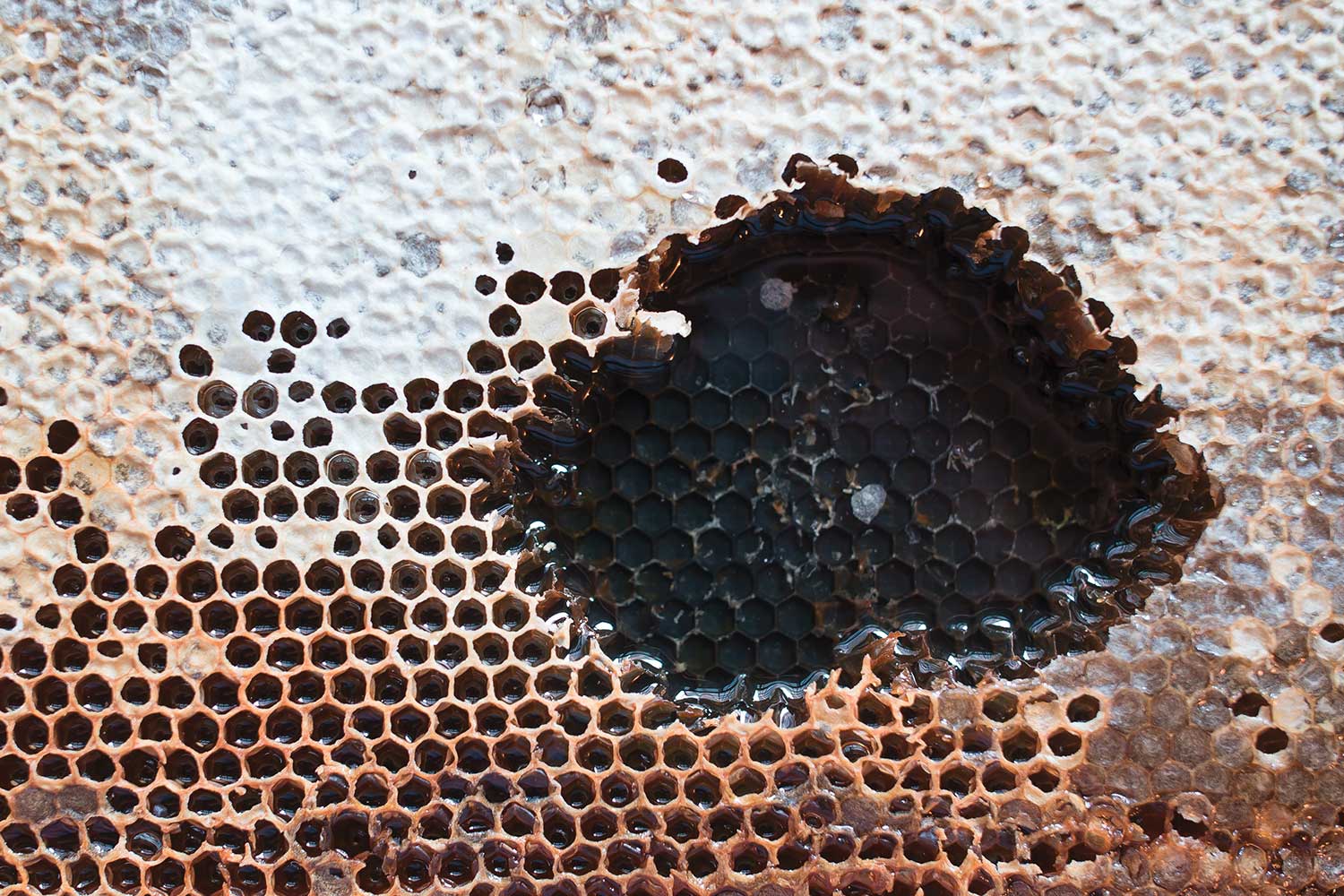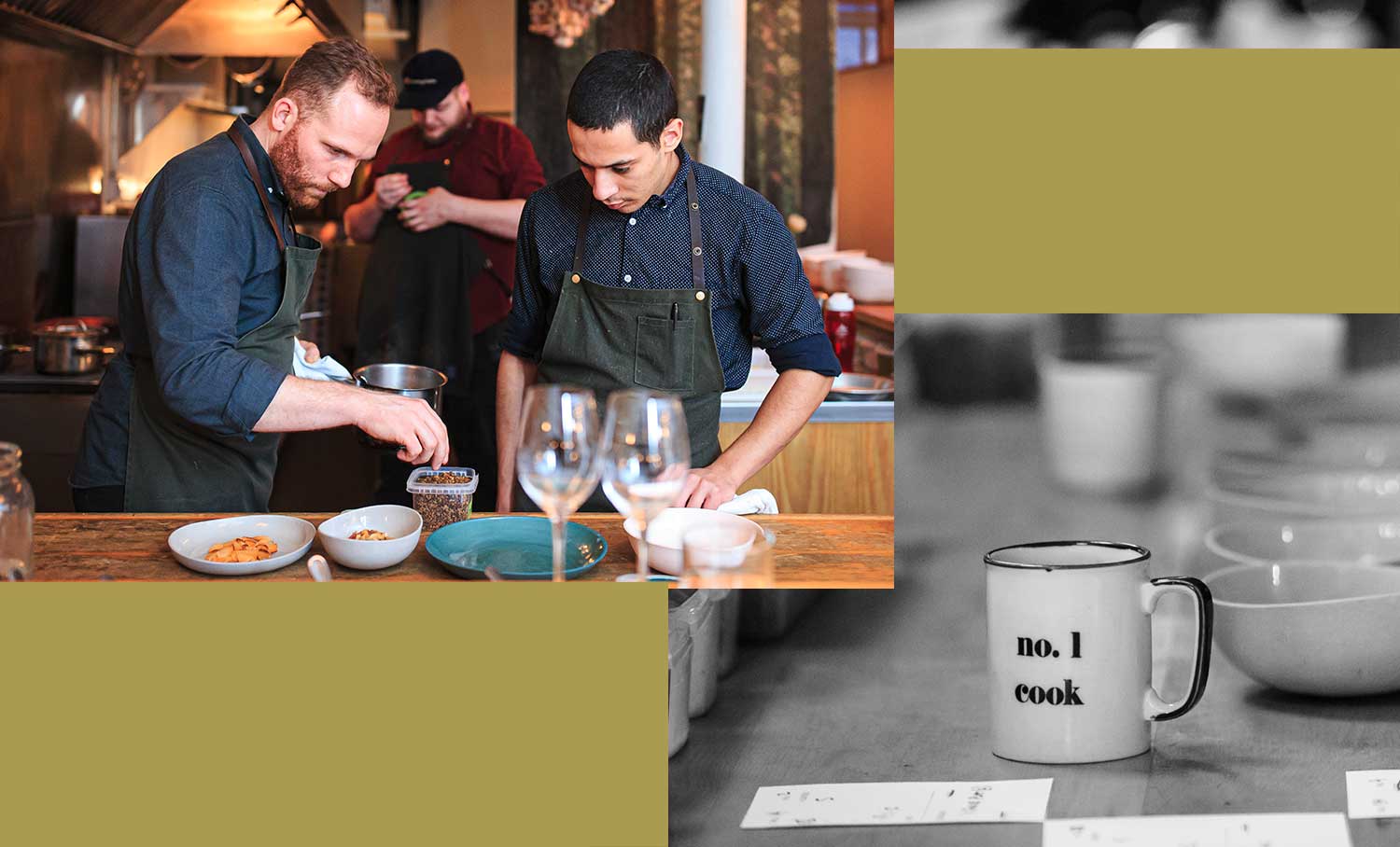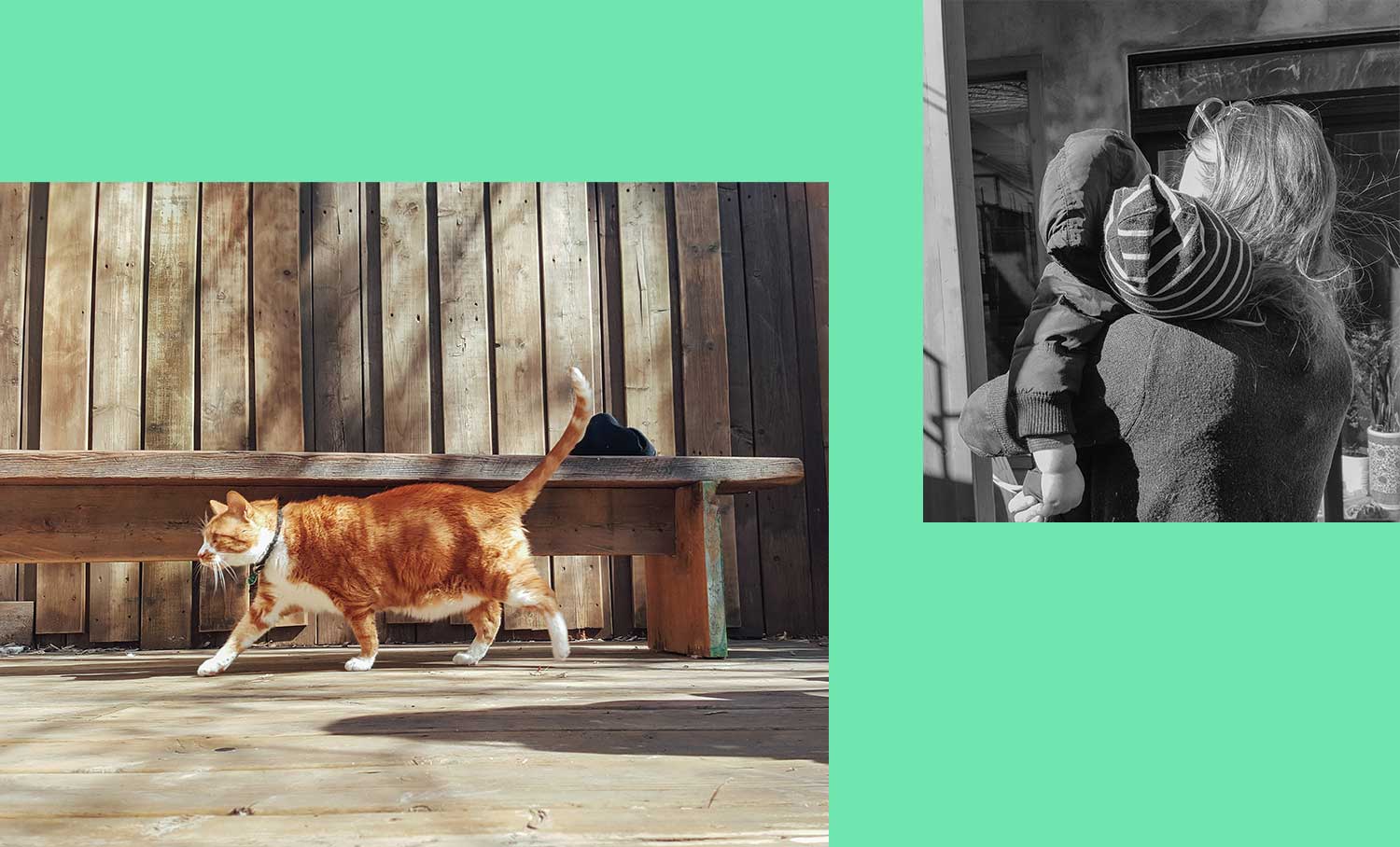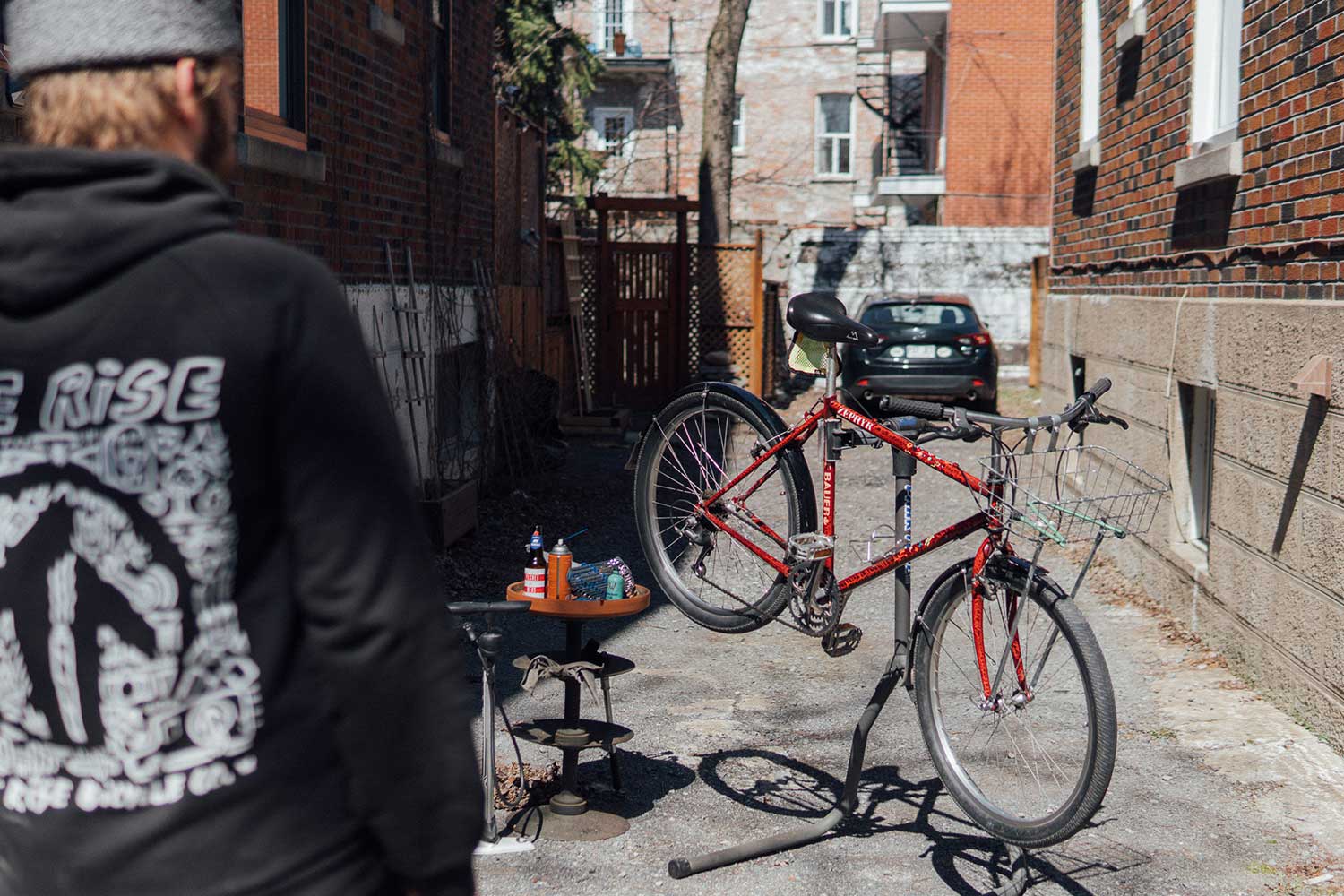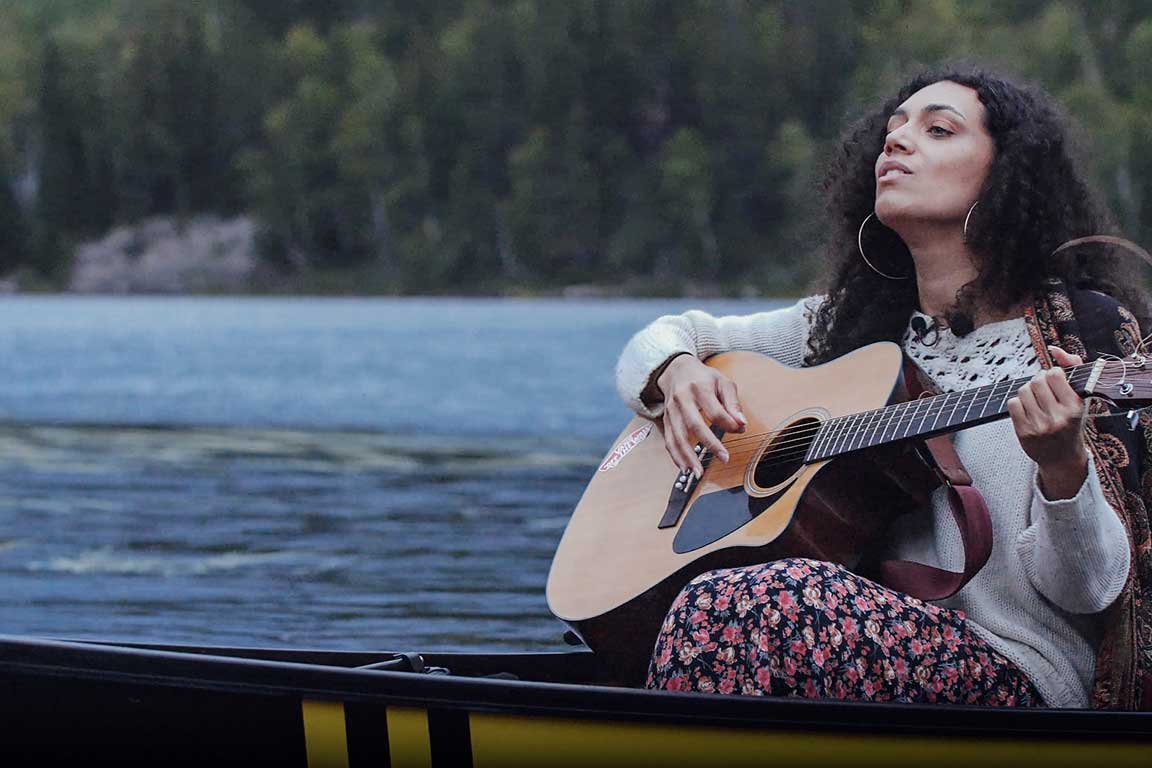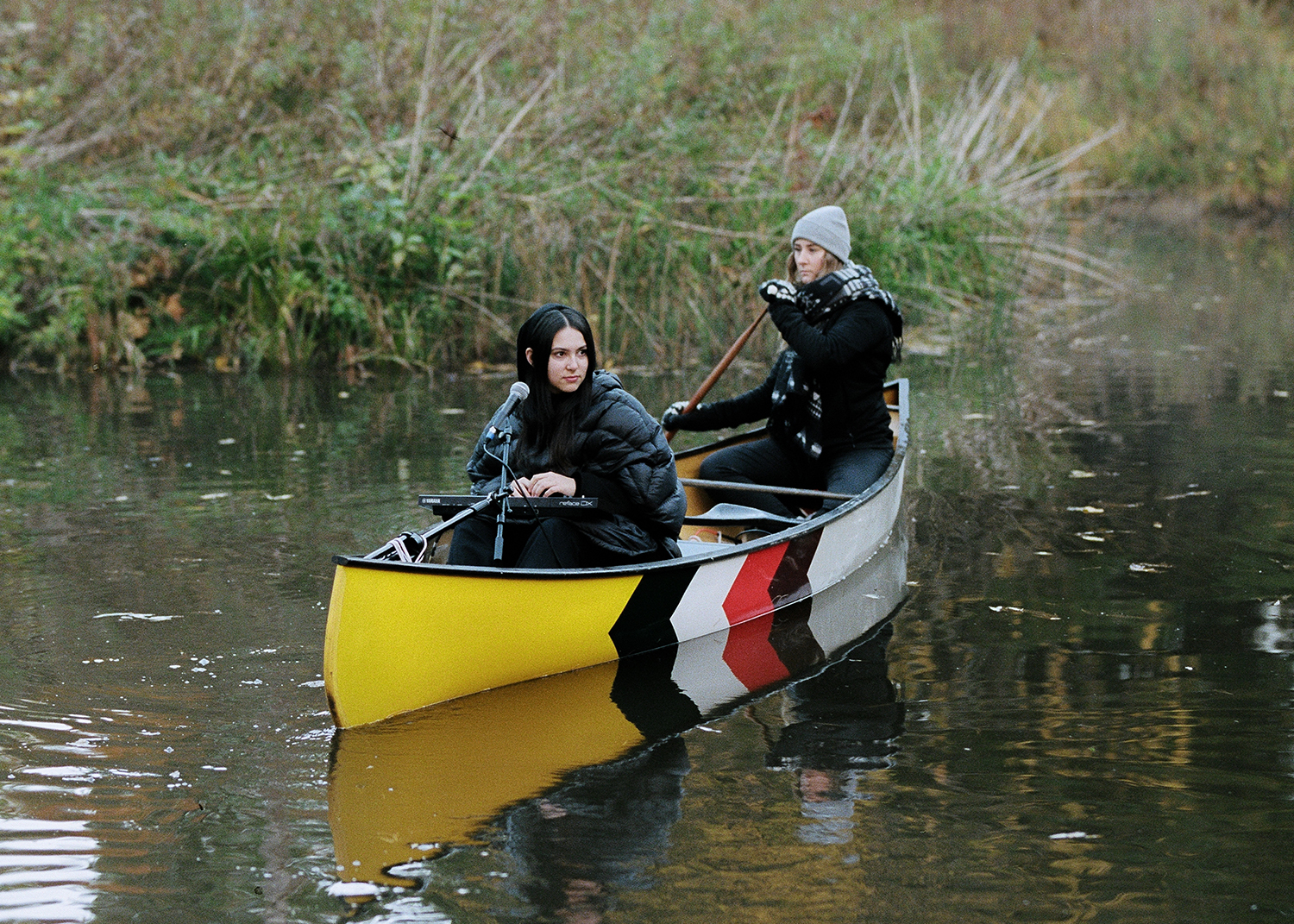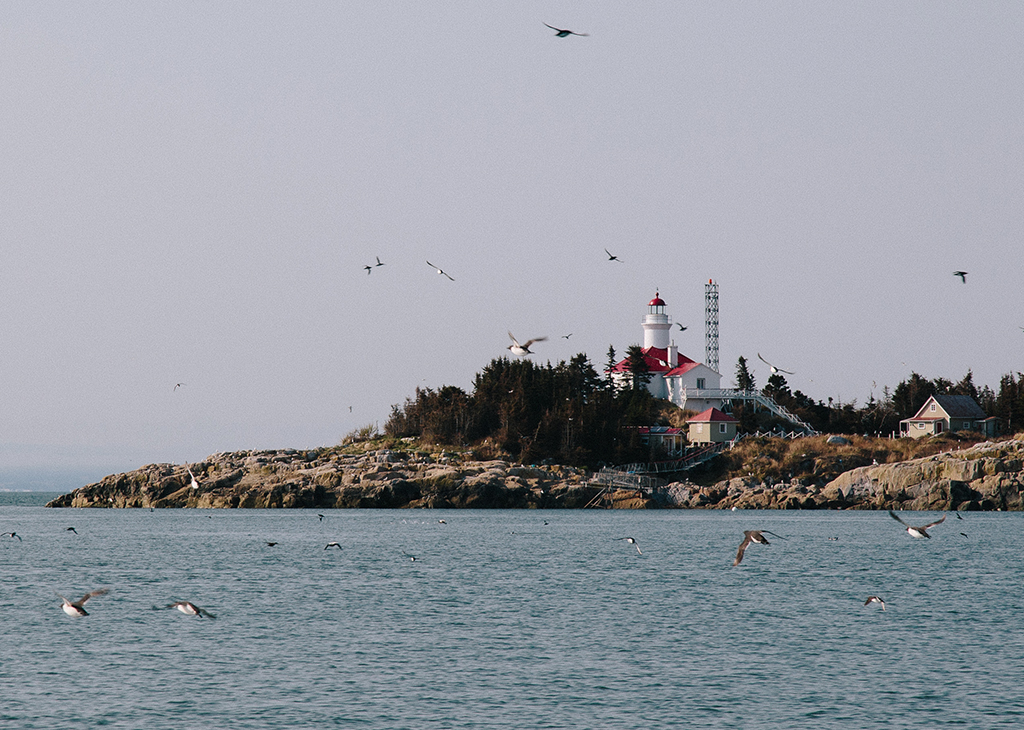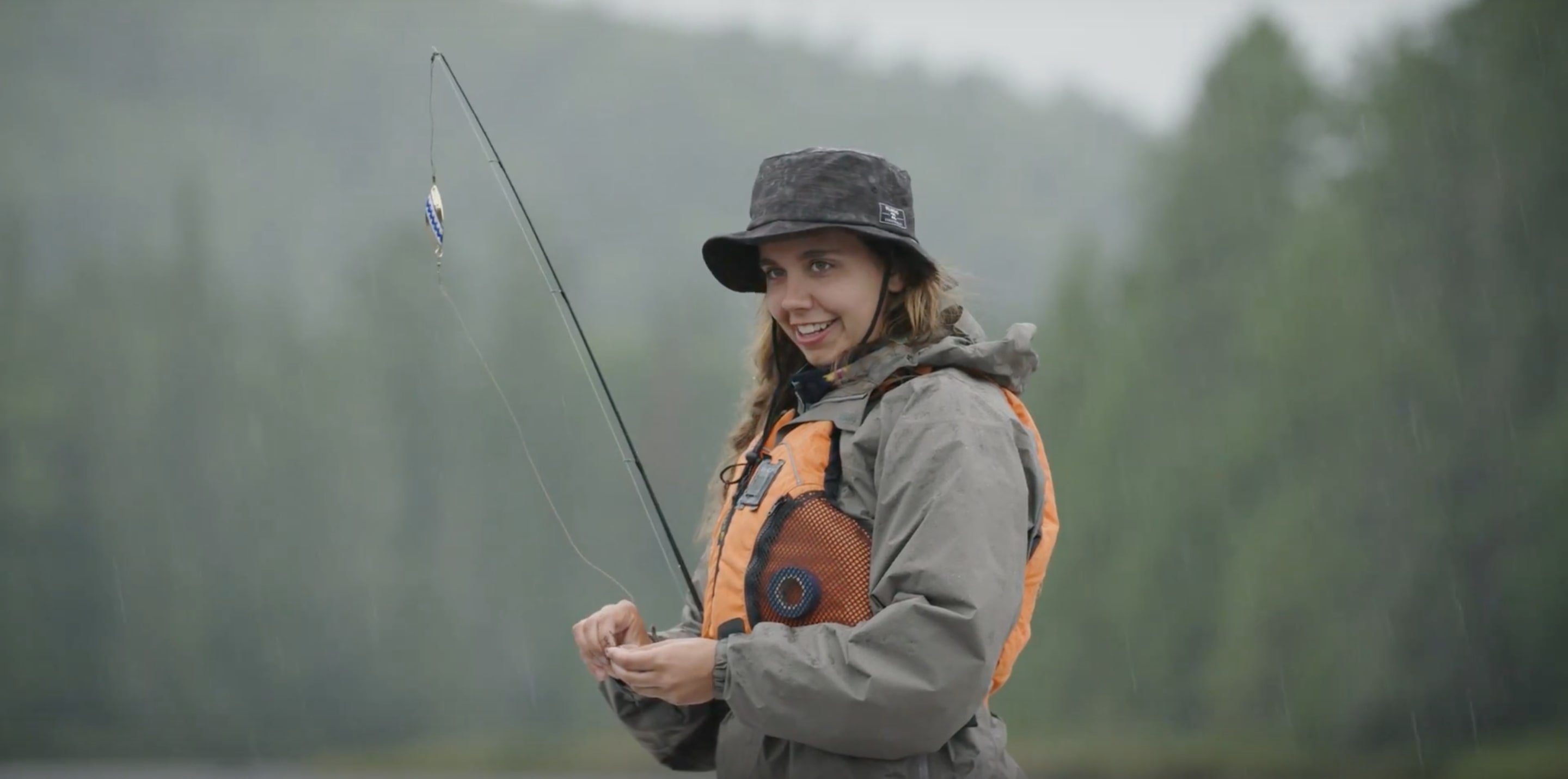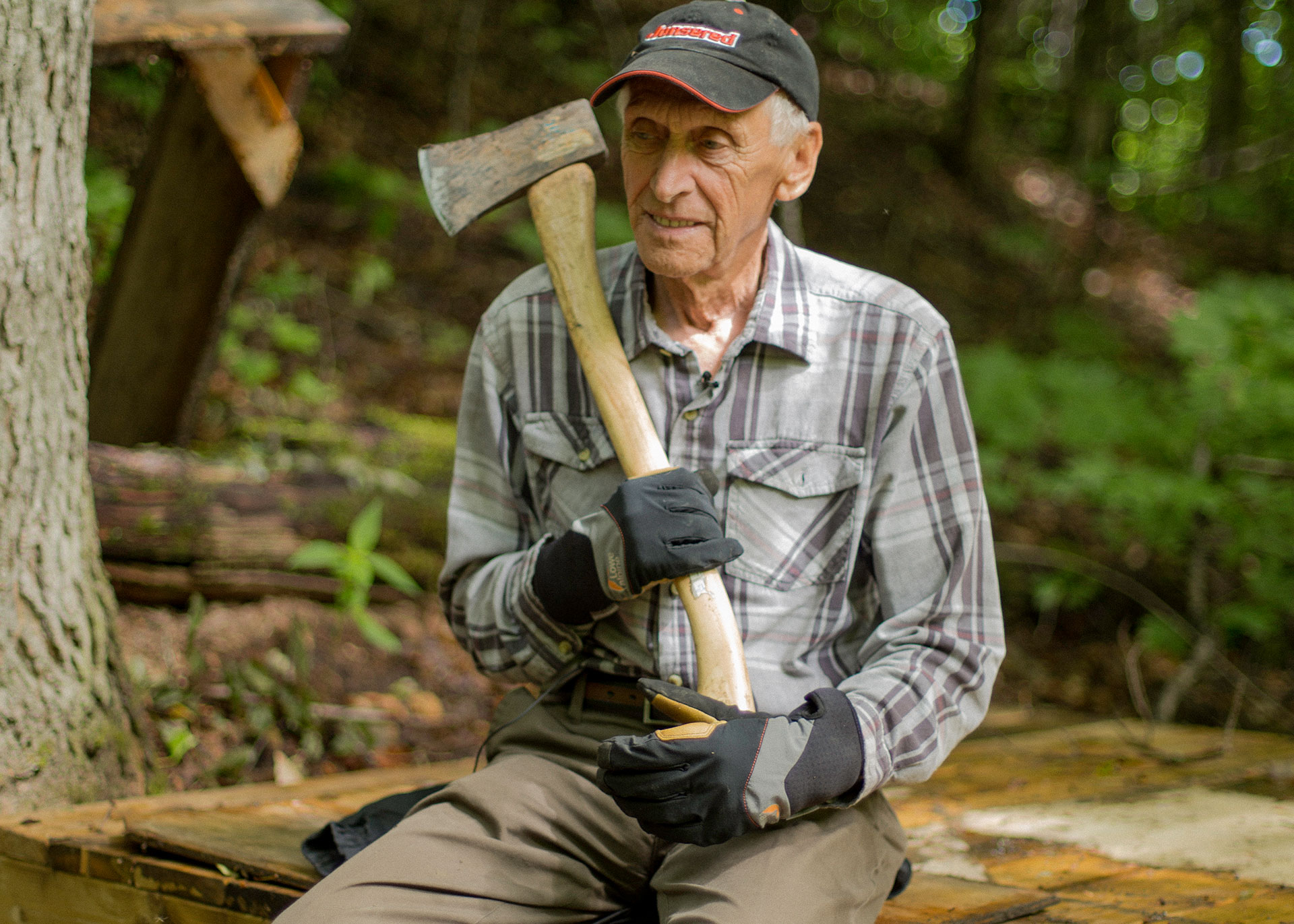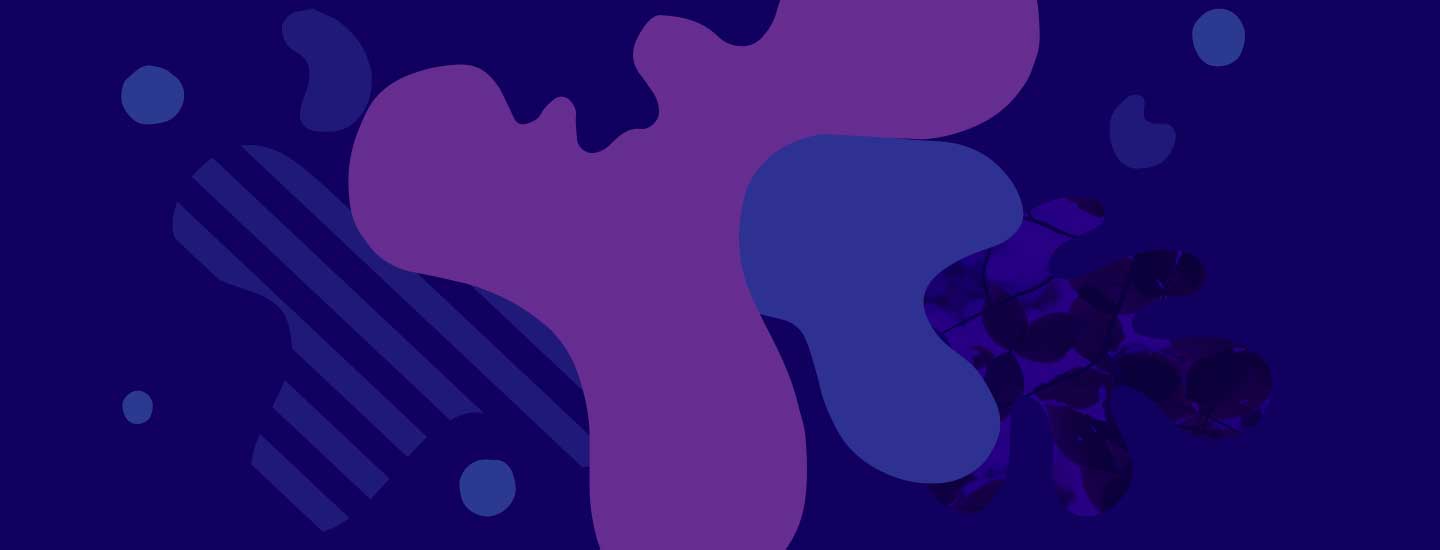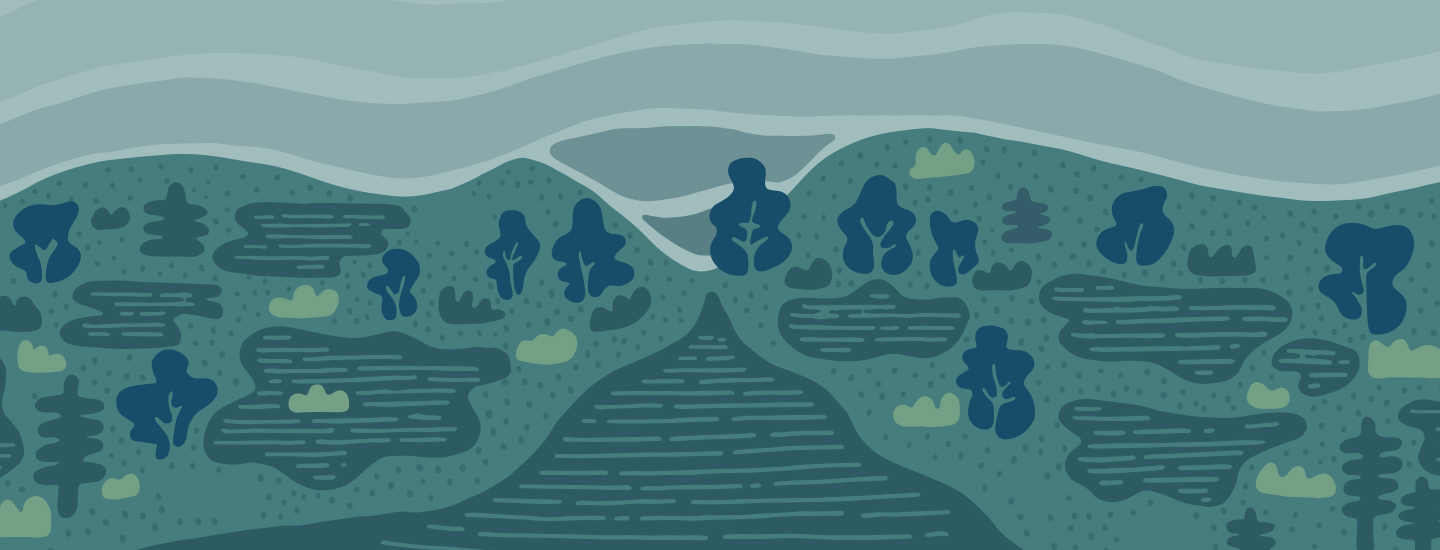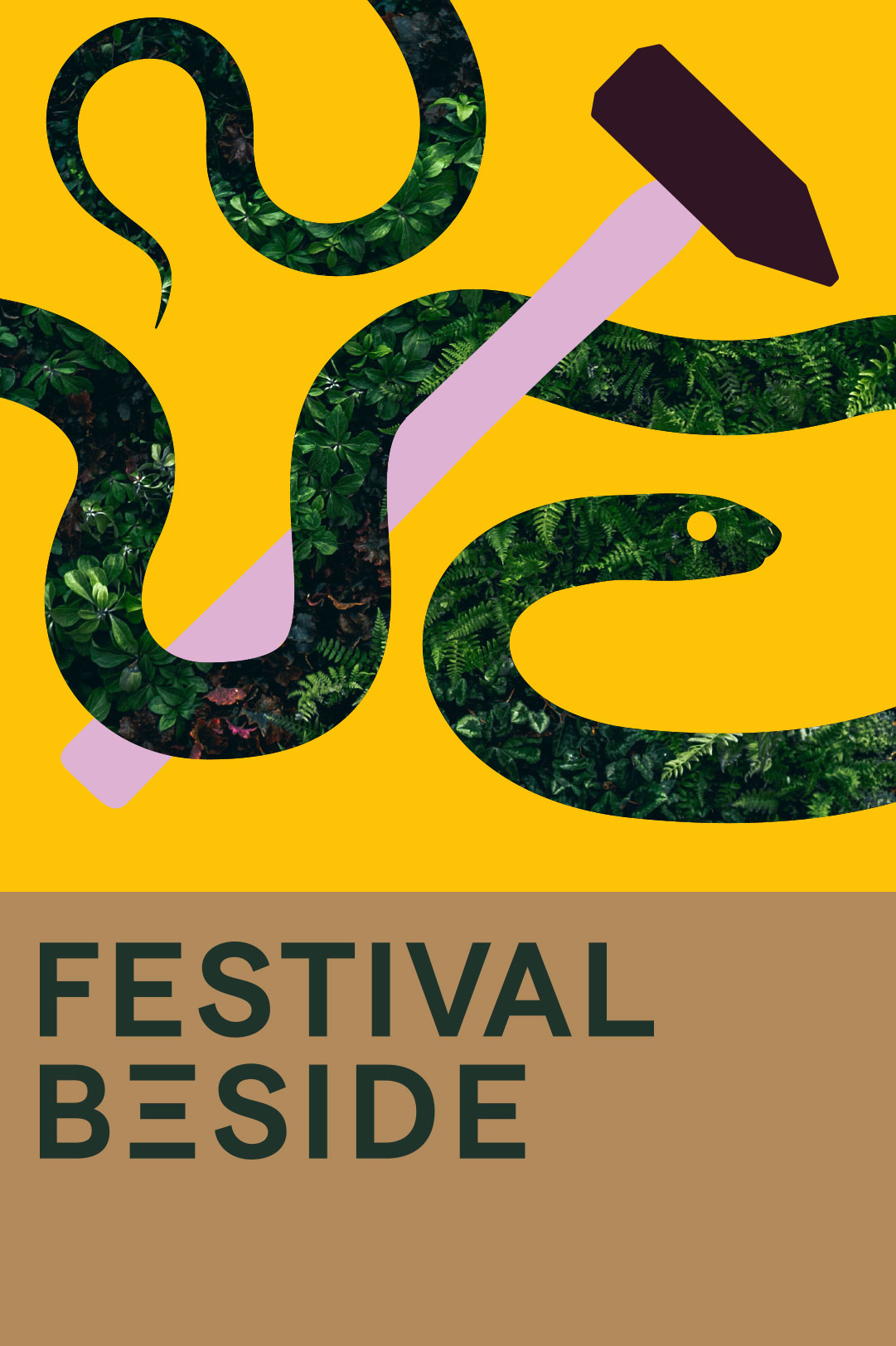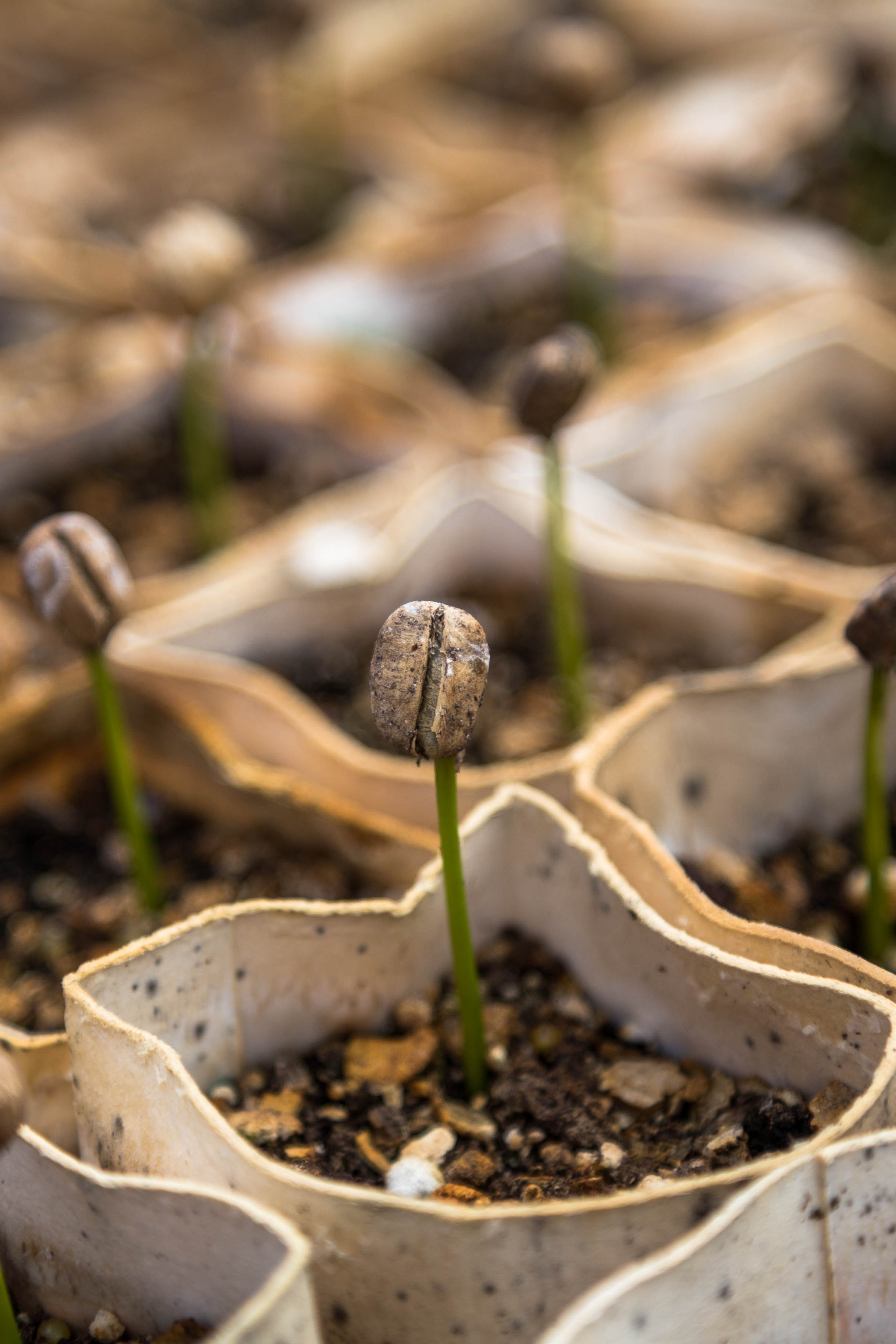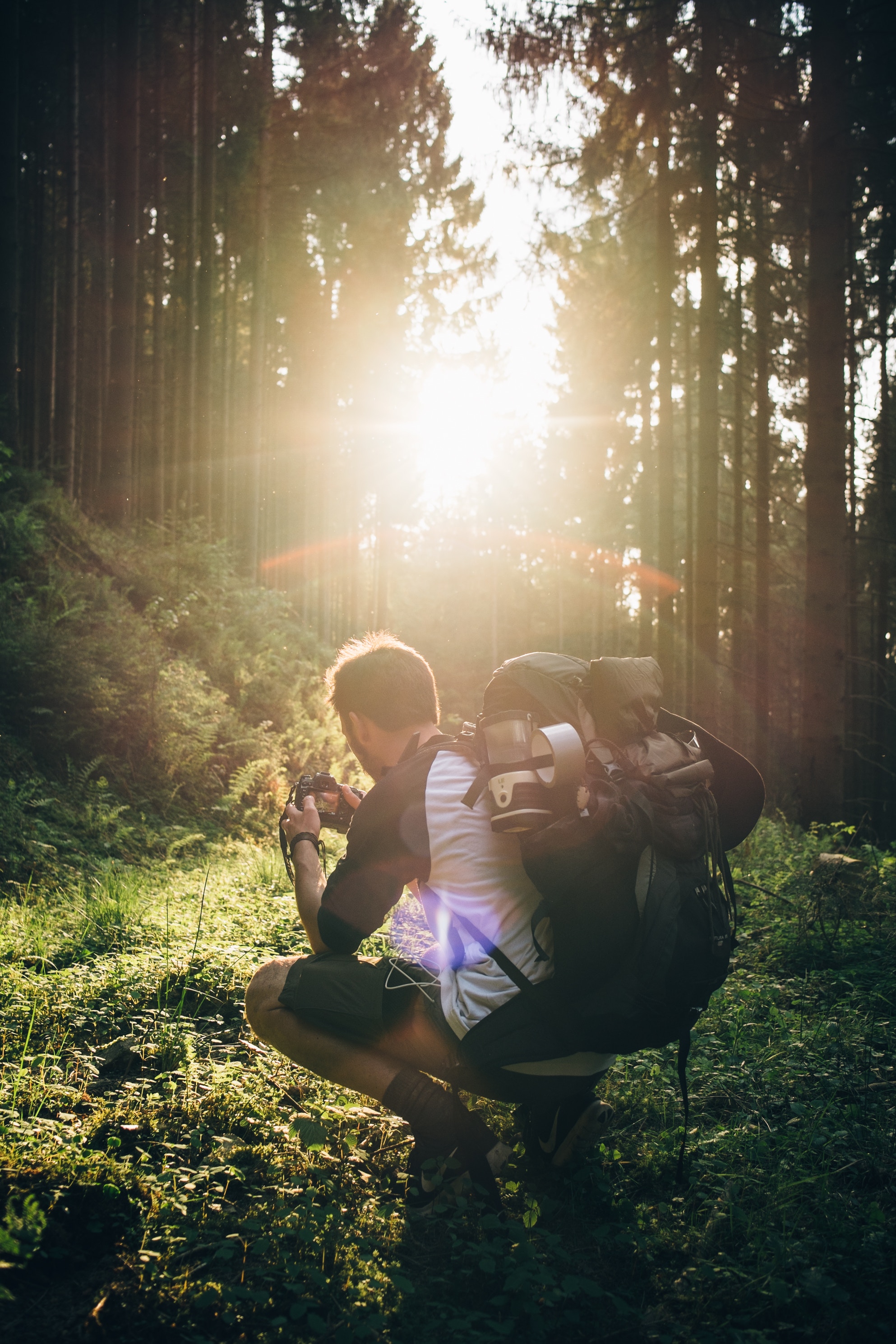Q&A
Consuming less and doing more
A Conversation with Yvon Chouinard.
Yvon Chouinard has been wearing the same flannel shirt for 20 years. The 75-year-old conservationist, outside-the-box thinker, athlete and craftsman is also an outspoken anti-consumerist and always pushing Patagonia, the company he founded, to find solutions to the global environmental crisis.
INTERVIEW Emily Anderson & Yasha Wallin, founders of The Usual
In the following interview, Chouinard talks about what he thinks his legacy will be. It turns out he “couldn’t really care less,” but we speculate it will be measured not by what he’s encouraged us to do more of (be in nature, be personally responsible, simplify) but by what he hopes we’ll do less of (buying, spending, polluting). In short, Chouinard wants us to stop being consumers and start being thoughtful global citizens.
Q&A
Your parents are French Canadian, and immigrated to the United States before you were born. What role has that played in your life?
Chouinard: I think it has affected my life a lot. I lived in Maine until I was seven years old and spoke only French. And then suddenly I’m doing a “grapes of wrath trip” across the country—six of us and everything we own in one automobile, moving to California. Immediately I was put in public school where everybody spoke English. I was the shortest kid in school and couldn’t speak English and I always had a chip on my shoulder, always got in fights. Finally I ran away from school. What it did was it put me on a different path than the other kids. After school I’d be down on the river bottom in LA, gathering crawdads and frogs to bring home to eat instead of playing football or baseball or something like that. Those kinds of early experiences either kill you or make you stronger. Thankfully they made me stronger. And also in business it’s made me enjoy breaking the rules and making them work. That’s the enjoyable part of business that I really like. The other parts I don’t care much for, but I love breaking the rules [laughs].
What do you think makes a good company?
Responsibility. During this last recession our company has experienced the highest growth it’s ever had. I think it’s because during a recession people stop being silly, they stop buying trendy stuff that will go out of fashion in a year or two. If they think it’ll last a long time, they’ll buy better quality things they need rather than things they just want, and that’s the kind of stuff we’re making. So our business is really strong. I find that the Millennials really appreciate what we’re trying to do to cause the least amount of harm in making our product. The Millennial generation has had some environmental education. They know what the problems are, they know we’re destroying this planet, they want to do something about it. And they want to support the companies that are doing something about it.
In fact we’re trying to tell our customers: think twice before you buy a product from us. Do you really need it or are you just bored and want to buy something? Then we’re taking responsibil-
ity for our product forever. If it breaks down, we promise to fix it. We’re going to come out with little booklets and videos showing people how to repair their Patagonia stuff themselves and when you’re finally either tired of the product or you’ve outgrown it or whatever, we’re going to help you get rid of it. We’re doing deals with eBay to help you resell it, and we’re going to start selling used Patagonia stuff in our stores. And then when the product is finally finished, give it back to us, and we’ll make more articles from it. So it forces us to make products that don’t wear out, but it also forces us to design a product with recycling in mind.
How has Patagonia’s mission statement evolved over the years since you started?
At first we were all interested in making the best products—that’s the first part of our mission statement. And then as we got concerned about the state of the planet, we added to it that our products would “cause no unnecessary harm.” Then as we got more depressed and concerned about the world we added a third part, which is influencing other companies to use our business to inspire and implement solutions to the environmental crisis. That’s what I really think about: leading by example, not just talking about what we’re doing.
Do you still remain optimistic or is that hard to do?
I’m not optimistic at all. I’m a total pessimist. I’ve been around long enough, travelled around enough, and been around a lot of smart people to know that we’re losing. In every single category, we’re losing. The problem is like [environmentalist] David Brower said, there’s no business to be done on a dead planet. Well, there’s nothing to be done on this dead planet. And that’s what I see happening. So yeah, I’m a total pessimist. But, I’m a happy person. I’ve accepted the fact that there’s a beginning and end to everything. All species are born, evolve, and then die off. We’re going through the sixth great extinction and the large mammals are going first, and you know what—we’re large mammals!
Is there anything we as individuals can do in the meantime?
Well, the reason why we won’t face up to our problems with the environment is that we are the problem. It’s not the corporations out there, it’s not the governments, it’s us. We’re the ones telling the corporations to make more stuff, and make it as cheap and as disposable as possible. We’re not citizens anymore. We’re consumers . . . It’s just like being an alcoholic and being in denial that you’re an alcoholic. We’re in denial that each and every one of us is the problem. And until we face up to that, nothing’s going to happen. So, there’s a movement to simplify your life: purchase less stuff, own a few things that are very high quality that last a long time, and that are multi-functional.
Why is Cerro Fitz Roy so meaningful to you?
You remember the trips that lasted for a long time. The way people do trips now, they take a week, they go to Europe—people don’t remember those trips very much. Or you go surfing in Indonesia for a week. But if you had to go overland or take a boat to get out to a faraway place, it’s quite different. That trip [to Mt. Fitz Roy] lasted six months and in that time there were a lot of adventures on the way. From sleeping on the ground in Guatemala and waking up with a gun to my head—there was so much going on. It became a really important trip in my life. At the time I was thinking about starting this clothing company, and I wanted to make clothes for the conditions we found down there, which are like hurricane-force winds and the evening with its orange look and its lenticular clouds. I thought, “This, this is what I want to make clothes for, I want to make clothes for Cape Horn and Patagonia.” I came up with the idea for the logo. At the time, Patagonia was like Timbuktu, which is this mystical place. Everybody kind of knew where it was, but didn’t really. We put Patagonia on the map, now everybody knows where it is, everybody goes down there.
Is there a climb that you’ve done in your lifetime that you’re most proud of?
I did a route on ElCapitan with my friend P. M. Herbert that took us 9 or 10 days. It was the first time that any of us had done a route on El Capitan with just two people and push, no fixed ropes or anything, and it was quite an achievement. And very difficult. That was probably my best climb.
Were you scared at any point?
Well, yeah, we got to the top with no food, no water, and very little equipment. It was pretty thin.
Was there ever a climb that defeated you?
Oh, yeah, I’ve backed off quite a few climbs. But there are climbs I’ve never attempted that I wish I had done, particularly in the Alps. I used to climb in the Alps a lot. You know, like the north face of the Eiger, I wish I had done that climb. To me it has kind of personified everything that I love about climbing. I have regrets about that, but as far as the failure, I don’t look back very often. I also don’t look forward very often. I’m kind of grounded. In fact, I have a hard time remembering failures.
A lot of people that do these climbs and outdoor activities in general talk about this connection to nature and kind of transcending something great-
er than themselves. Is that how you felt when you started getting into this and do you still feel that way?
Yeah, sure. I mean, that’s the reason—especially for young people—that they do those things. They want to push their limits, to see what they’re made out of. That’s why a lot of these guys are paddling into giant waves. They’re out to see what they’re made of, and I think it’s pretty cool. One of the things I really believed in is the idea of simplicity, that life should always be moving toward more simplicity rather than more complexity. And when I see somebody riding a finless surfboard and surfing better than 99 per cent of the surfers out there, I think, “This is fantastic. This is the way to go.” We’ve gone from tow-in surfing to now paddling into those same waves. And that’s the direction we should be going, rather than more toward technology. In the 1970s there was a thing around that “he who dies with the most toys wins.” That’s wrong, it’s the opposite.
You want to replace all that gear with knowledge and experience.
And so in sports I’d love to see the people who are simplifying their sport. I’ve done about six routes on El Capitan and Yosemite—and some of those routes that took us 10 days to climb are now being soloed with no rope by guys in their gym shorts. And they’re back down before lunch. I think that’s absolutely fantastic. Glad they’re not my kids, but that’s the direction we should always go.
What do you consider is your biggest environmental accomplishment?
We have gathered 49 large companies, representing nearly a third of all clothing and footwear sold on the planet, under the roof of the Sustainable Apparel Coalition. With them, we are developing the Higg Index, a sustainability measure for apparel and footwear, kind of like organic standards for foods. Right now when you go buy clothing from a company, you have no idea how the product was made.
Within a few years you’ll be able to walk into a department store and there’ll be five brands of jeans; each one will have a number on it that will tell you how responsibly—or irresponsibly—they were made. It will include whether the fibre is organic cotton or industrially grown cotton, it will include biodiversity, the working conditions at factories—everything. And it’s going to have a grade so if it’s important for the consumer to cause the least amount of harm, they’ll have access to the information which allows them to do that. With the entire apparel supply chain, we are creating one common measuring stick of where we are, and one road map to show us where we need to go. This has potential to change the world.
What kind of work are you doing right now with the environment that you’re passionate about?
Our next big campaign is to imagine an economy that doesn’t destroy the planet. It’s a tough one. It’s the hardest thing we’ve ever tried to talk about. Everything you talk about kind of leads to a dead end. We don’t want to be wishy-washy, we just talk about the symptoms of what’s wrong with our society. If you look at the causes you’ll realize we’re doing absolutely nothing to solve the causes, and it’s pretty easy to get depressed about it. Especially because I just had my first grandchild. She’s going to still be alive at the end of this century, and by then there’s going to be a five-foot sea level rise. At least, that’s what they’re predicting now. Every month there’s a new study about climate change that is grimmer than the one before. So things are happening so much faster than we even predicted.
So how would you help your granddaughter to be optimistic about the situation?
I don’t think being optimistic does any good, it’s sticking your head in the sand. I think what’s important is to raise a grandchild so they have a love for nature. You protect what you love, and if you love nature then you’ll want to protect it. And that’s one of the problems that we have, this nature deficit disorder. We have gang kids in New York City that are afraid to go to Central Park because of the squirrels there [laughs]. They’re so divorced from nature. So the best thing I can do is make sure she has a life as much in the outdoors as possible.
BESIDE: So after all this do you still consider yourself a dirtbag?
Well, if you saw my lifestyle, yeah, you’d probably agree. I drive old cars, all my Patagonia clothes are years and years old, I hardly have anything new. I try to lead a very simple life. I am not a consumer of anything. And I much prefer sleeping on somebody’s floor than in a motel room. So, yeah, I fit the profile all right.
BESIDE: What would you like your legacy to be?
You know, I couldn’t care less about my legacy. ■
—
To read more . . .
This article was initially published in Issue 01 of BESIDE Magazine.
Magazine 01